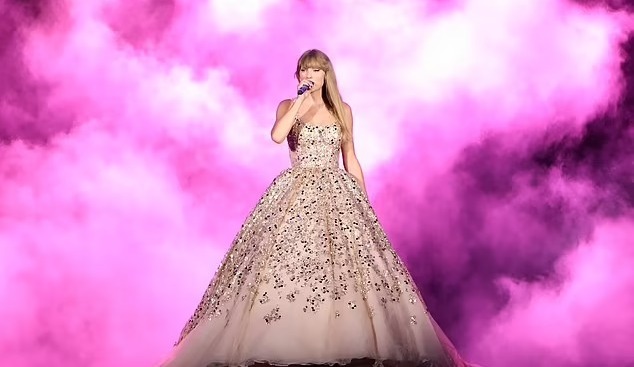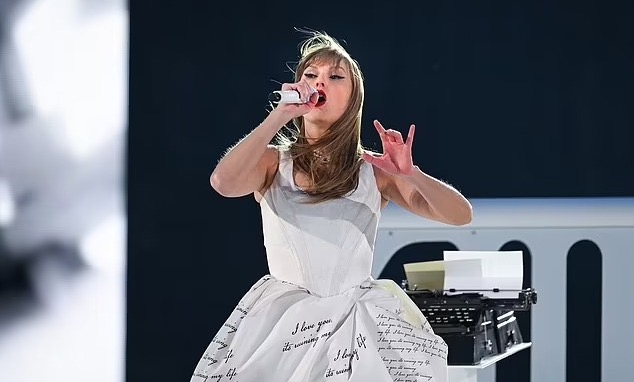CELEBRITY
The Magic of Concerts Through Young Eyes: An Unforgettable Experience Picture it: the lights dim, the crowd roars, and Taylor Swift steps onto the stage. For many young fans, this moment is pure, unfiltered magic. It’s not just a concert; it’s a life-changing dream come true. Imagine the spine-tingling thrill of singing along to your favorite songs, the exhilarating joy of connecting with friends, and the electrifying pulse of live music. As correspondent Ben Hoyle passionately describes, these experiences are utterly unforgettable.

It’s been a bumper week for middle-aged journalists enthusing about Taylor Swift. Broadsheet music critics attending the Edinburgh leg of her ongoing Eras tour seemed positively high on second-hand oestrogen fumes as they filed their encomiums. And there were further excitable contributions from parents, writing about the joys of taking teenagers to the show.

In the Times, correspondent Ben Hoyle wrote that going to the concert with his wife and children had acted as a bonding experience for the family, during which he realised “he couldn’t be happier”. An accompanying picture showed him resplendent in a hot pink feather boa, which he said had been urged upon him by his teenage daughters. Meanwhile, in the Mail on Sunday Bryony Gordon recounted the story of what was, for both her and her 11-year-old, “the best night of our lives — and made all the more magical for getting to enjoy it together”. According to Gordon, the concert had “united the generations in sparklingly spectacular glory”.
Less cynical minds than mine probably read this stuff with approval. Assuming that parents and children are increasingly mutually alienated, lost in different online worlds, isn’t it refreshing to read about a relatively innocent communal activity taking place in the open air? But I’m afraid I’m going to be the voice of doom. If you want that sort of thing, do a
Reality is not ideal, however; and I’m as guilty as the next Gen X-er of having a Spotify playlist that ill behoves my advancing years. In fact, with my own kids, it is as if the poles have reversed — when my 18-year-old tells me he has an “absolute banger” he wants me to listen to, more often than not it’s by Fats Waller. It’s all a far cry from the late 20th century, where an informal social contract still existed between teenagers and their parents, dictating that the right and proper attitude towards the other party’s music should be suspicion bordering upon downright contempt.
Youngsters could feel rebellious in virtue of whatever fresh aural hell was emitting from turntables and tape recorders, while adults in the vicinity would mutter gratifyingly about the culturally impenetrable noise. Concerts and raves were places for older kids to engage in Dionysian excess — dancing, moshing, screaming, crying, snogging, crowdsurfing, ingesting stimulants, and acquiring eardrum injuries — as their parents worried about them impotently, far removed from the action.
But then the mobile phone came along, spoiling live music in a number of ways — and not just because now, at emotionally charged moments, you had to wave your phone torch aloft instead of a lighter. Soon, certain
brains would automatically translate nascent feelings of excitement into an imperative to film something; to adopt a shrewd directorial eye towards incoming sensory experience, treating it as a product to be sold on later to others. This also meant it was no longer possible to dance like no one was watching. Another result was that now young people were never very far away from their parents, psychologically speaking — only a call away, in fact, which seems at some point in the 2010s to have morphed into “only a few feet away” instead.











